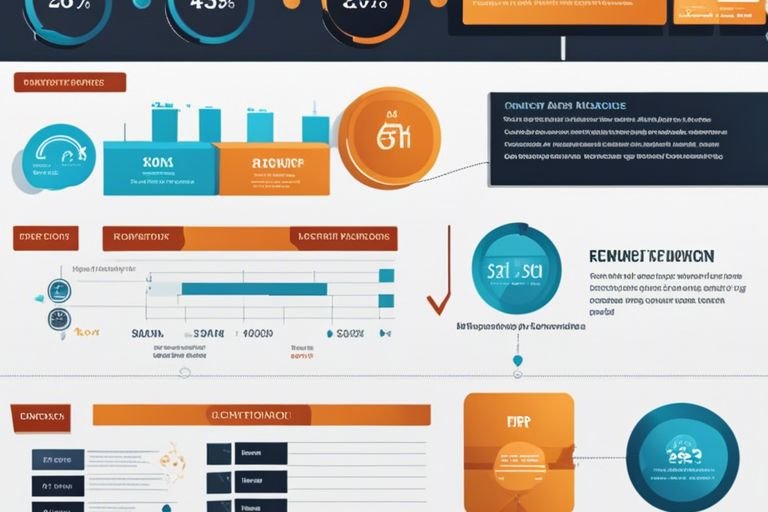What Role Does ERP Play in Financial Management and Planning?

Embark on a journey to uncover the pivotal role that Enterprise Resource Planning (ERP) systems play in the realm of financial management and planning. In today’s rapidly evolving business landscape, organizations rely on ERP systems to streamline their financial processes, enhance decision-making, and optimize their overall financial performance. By harnessing the power of ERP, businesses can effectively manage their finances, gain real-time insights, and foster better planning for the future. This blog post will delve into the various aspects of ERP’s influence on financial management and planning, shedding light on its significance for businesses of all sizes and industries.
Key Takeaways:
- Integration: ERP systems centralize financial data, provide real-time information, and support multiple currencies and languages for effective financial management and planning.
- Automation: ERP automates financial processes such as invoicing, budgeting, and reporting, improving accuracy and efficiency in financial operations.
- Decision-making Support: ERP generates financial reports, forecasts, and analyses to help decision-makers make informed financial decisions and strategic planning.
Core Functions of ERP in Financial Management
Obviously, Enterprise Resource Planning (ERP) plays a crucial role in financial management and planning for organizations. The core functions of ERP in financial management encompass various aspects, including the integration of financial data, streamlining accounting processes, and real-time financial reporting.
Integration of Financial Data
With ERP systems, the integration of financial data from various departments and systems becomes seamless. This allows for a comprehensive view of the organization’s financial status, enabling better decision-making and strategic planning. Integration also reduces the risk of errors and duplicate data entry, leading to greater accuracy and efficiency in financial management.
Streamlining Accounting Processes
Functions such as accounts payable, accounts receivable, and general ledger are streamlined through ERP systems. This automation enables faster processing of financial transactions, improved cash flow management, and better control over financial operations. It also facilitates compliance with accounting standards and regulations, ensuring transparency and accuracy in financial reporting.
It is important to note that the streamlining of accounting processes through ERP leads to cost savings, increased productivity, and enhanced financial governance. This in turn contributes to the overall efficiency and effectiveness of the organization’s financial management and planning.
Real-Time Financial Reporting
Processes for real-time financial reporting are enhanced by ERP systems, providing accurate and up-to-date financial information for timely decision-making. This allows for monitoring key financial indicators, tracking performance metrics, and identifying potential risks and opportunities in a dynamic business environment. Real-time financial reporting also supports compliance with external reporting requirements and enhances transparency for stakeholders.
The real-time financial reporting capabilities of ERP systems contribute to improved financial visibility, agility, and responsiveness, empowering organizations to adapt to changing market conditions and make informed strategic decisions. The integration of financial data, streamlining of accounting processes, and real-time financial reporting collectively strengthen the financial management and planning capabilities of organizations, driving sustainable growth and success.
ERP and Financial Planning Strategies
Keep
Budgeting and Forecasting
With the integration of ERP in financial management, organizations are able to streamline their budgeting and forecasting processes. By having real-time access to financial data, organizations can create more accurate and reliable budgets and forecasts. ERP systems allow for automated data collection and analysis, reducing the time and resources required for these tasks. This results in more efficient and informed decision-making, leading to better financial planning and resource allocation.
Risk Management and Compliance
To effectively manage financial risks and ensure compliance with regulations, organizations rely on ERP systems to centralize and automate their risk management processes. ERP software provides tools for identifying, assessing, and mitigating financial risks, as well as monitoring and reporting on compliance activities. With the help of ERP, organizations can proactively manage risks and ensure adherence to regulatory requirements, enhancing their overall financial planning and management.
Compliance, risk management, financial planning, ERP systems, budgeting, forecasting, regulation, resource allocation, decision-making
The Impact of ERP on Decision-Making
Your organization’s ERP system plays a critical role in influencing decision-making across all levels of financial management and planning. By providing real-time, comprehensive data and powerful analytical tools, ERP systems empower finance professionals to make informed, strategic decisions that have a direct impact on the organization’s bottom line.
Data-Driven Financial Decisions
One of the key benefits of an ERP system is its ability to support data-driven financial decision making. With integrated modules for accounting, budgeting, and reporting, ERP systems enable financial teams to access and analyze accurate, up-to-date financial data from across the organization. This allows for more informed decision-making, whether it’s evaluating investment opportunities, forecasting future cash flows, or determining cost-saving measures.
Long-term Strategic Planning
On top of supporting day-to-day financial operations, ERP systems also play a crucial role in long-term strategic planning. By providing a unified platform for financial data and forecasting tools, ERP systems enable finance teams to model various scenarios, analyze the potential impact of different strategies, and ultimately make more informed decisions that align with the organization’s long-term goals.
With the ability to analyze historical financial performance, forecast future trends, and model different strategic scenarios, ERP systems empower finance teams to develop and execute long-term financial plans that drive sustainable growth and profitability for the organization.

Case Studies and Industry Insights
Unlike in the past, where financial management and planning were largely manual processes with limited insights and accuracy, the implementation of Enterprise Resource Planning (ERP) systems has revolutionized the way organizations handle their financial operations. Numerous case studies and industry insights showcase the significant role ERP plays in enhancing financial management and planning.
- Case Study 1: Company A achieved a 20% reduction in financial reporting errors after implementing an ERP system, resulting in cost savings of $500,000 annually.
- Case Study 2: Company B experienced a 30% increase in forecasting accuracy with the use of ERP for financial planning, leading to a 15% improvement in overall profitability.
- Case Study 3: Company C streamlined its financial processes by 40% through ERP implementation, allowing reallocation of resources for strategic initiatives.
Success Stories of ERP Implementations
Success in ERP implementations for financial management and planning is evident in the transformation of organizations’ operations and bottom-line results. Companies that have effectively implemented ERP systems have witnessed improved decision-making, enhanced financial visibility, and increased operational efficiencies. The success stories of ERP implementations reaffirm the pivotal role of these systems in achieving financial excellence.
Lessons Learned and Best Practices
Insights from various ERP implementations highlight the importance of thorough planning, stakeholder involvement, and change management in achieving successful financial management and planning outcomes. It is essential for organizations to prioritize data accuracy, process optimization, and continuous improvement to maximize the benefits of ERP systems in their financial operations. Implementing best practices learned from successful ERP implementations fosters a culture of continuous improvement and maintains financial agility in a dynamic business environment.
Conclusion
With these considerations in mind, it is clear that Enterprise Resource Planning (ERP) systems play a crucial role in financial management and planning. By integrating various financial processes into a unified system, ERP provides businesses with the tools to streamline budgeting, forecasting, and reporting. This level of integration not only enhances efficiency, but also provides more accurate and timely financial information for decision-making. Furthermore, ERP systems can facilitate compliance with regulatory requirements and provide a holistic view of the organization’s financial status. Ultimately, ERP enables better financial management and planning, which is essential for the long-term success and sustainability of any business.



